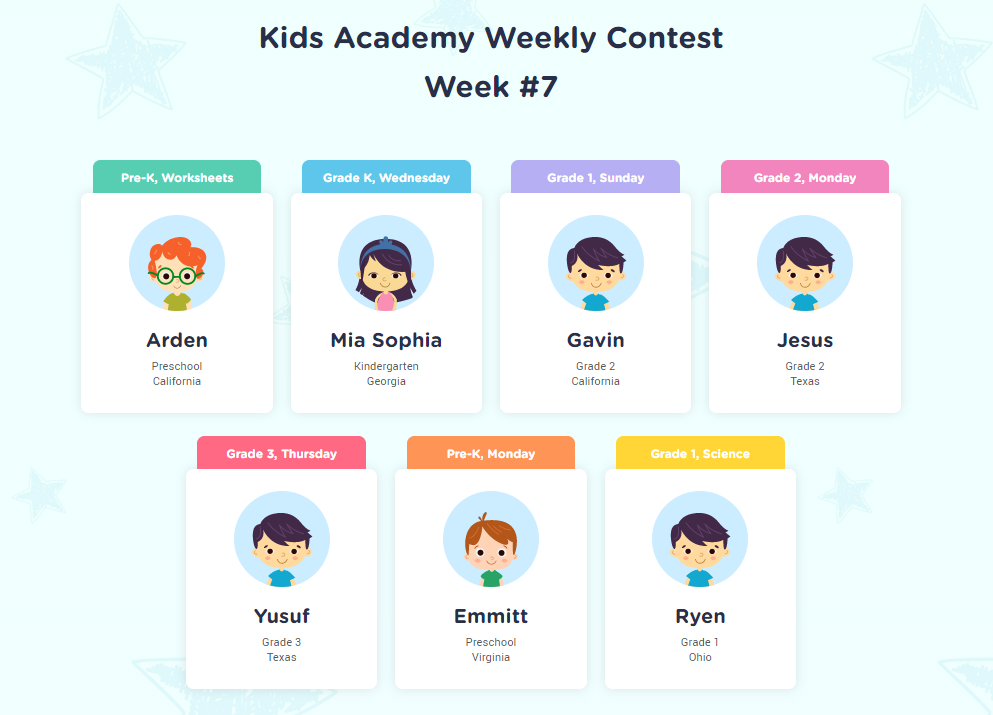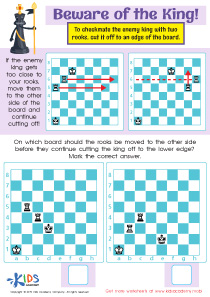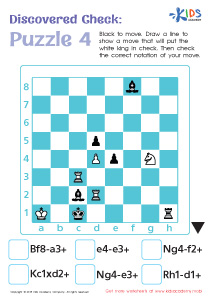Chess strategy understanding Easy Chess Worksheets for Ages 4-6
3 filtered results
-
From - To
Unlock your child's potential with our 'Chess Strategy Understanding' Easy Chess Worksheets, designed specifically for ages 4-6! These engaging activities introduce young learners to basic chess concepts and strategies in a fun, accessible way. Each worksheet fosters critical thinking and problem-solving skills while nurturing an appreciation for this timeless game. Your little ones will explore the movements of various chess pieces and understand the importance of strategy through hands-on exercises that captivate their imagination. Perfect for home or classroom use, these worksheets provide a solid foundation in chess that will benefit early learners as they grow. Start their chess journey today!
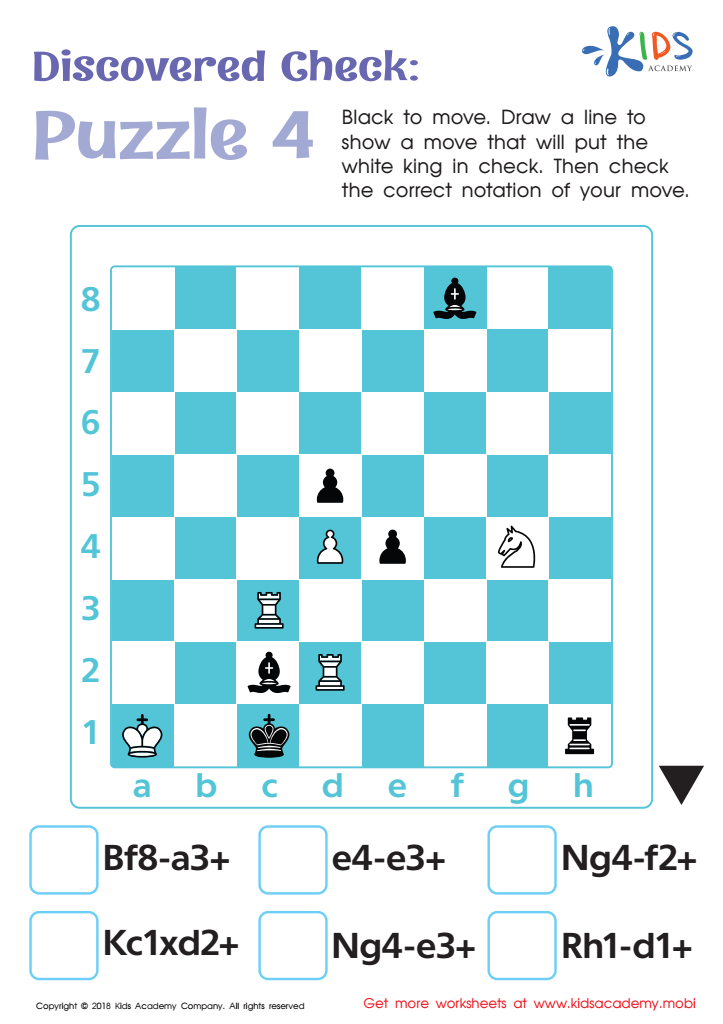

Discovered Check: Puzzle 4 Worksheet


Discovered Check: Puzzle 2 Worksheet
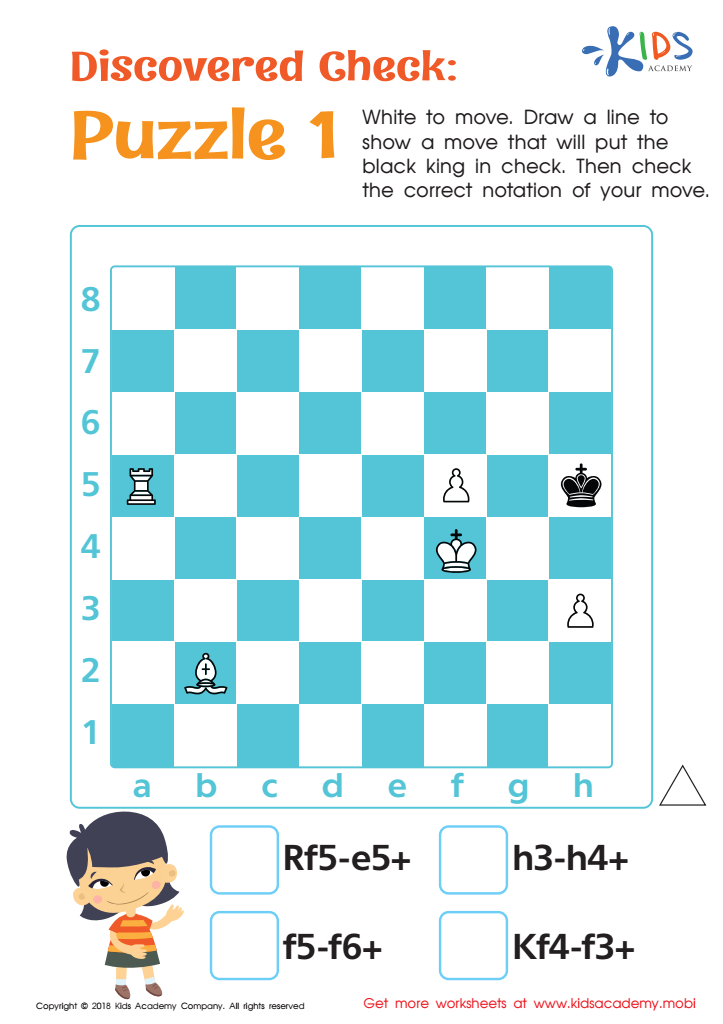

Discovered Check: Puzzle 1 Worksheet
Understanding chess strategy, even at a basic level, can greatly benefit children aged 4-6. First and foremost, chess fosters critical thinking and problem-solving skills. By learning how to think several steps ahead, children develop the ability to anticipate consequences, a skill that is valuable in everyday life.
Additionally, chess promotes patience and focus. Young children are learning to concentrate on tasks and regulate their impulses, and the structured nature of chess helps cultivate these traits. As they learn to wait for their turn and think strategically, they build, persistence and discipline.
Moreover, chess offers a fun and engaging way to introduce basic math concepts, such as counting, spatial awareness, and patterns. Understanding simple strategies and moves reinforces cognitive development and lays the groundwork for future academic success.
Lastly, chess encourages social interaction. By engaging in a game, children learn sportsmanship, the value of cooperation, and how to handle winning and losing gracefully. For parents and teachers, introducing chess at an early age can be an enriching tool that provides countless developmental benefits, paving the way for lifelong skills. Investing time in teaching chess can create a nurturing and stimulating learning environment for young children.








